The recommended daily dose contains:
- Glucosamine Sulphate 600,000 mg
- Vitamin C 50,000 mg
- Green tea (extract) 50,000 mg
- Collagen hydrolyzate 50,000 mg
- Chondroitin Sulfate 50,000 mg
- Vitamin E (D-alpha-tocopheryl acetate) 36,000 mg
- Artichoke 20,000 mg
- Grape seeds (extract) 20,000 mg
- Devil's Claw 20,000 mg
- Rosemary 10,000 mg
- Incense 10,000 mg
- Selenium (from selenium yeast) 0,056 mg
Glucosamine Sulphate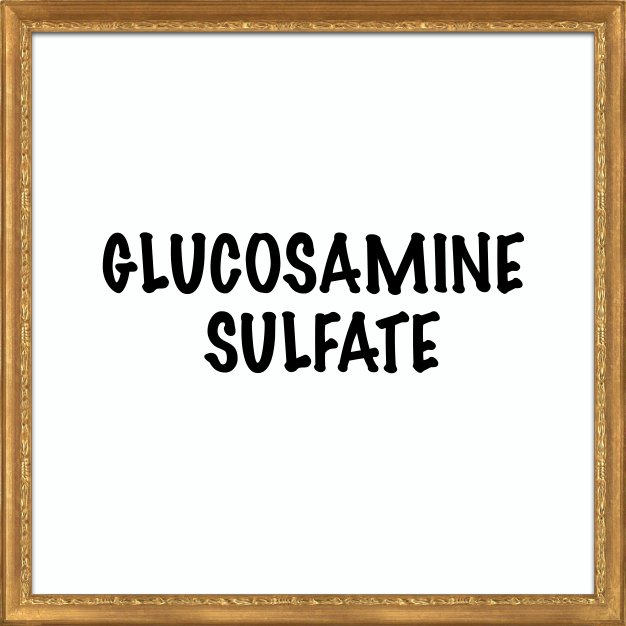
Glucosamine is involved in the formation of joint surfaces, bone tissue, tendons, muscles, veins, arteries and heart valves. It is a component of the proteoglycans that make up articular cartilage. During joint movement, proteoglycans are destroyed and require continuous replacement. With a lack of glucosamine, their production is disturbed, causing degenerative joint diseases, such as osteoarthritis. With it, the cartilage that covers the joint surfaces wears away, becoming grooved, uneven and thin. Osteoarthritis most often affects the knee, hip joints and spine. Taking glucosamine reduces the possibility of developing joint diseases and promotes joint recovery. The glucosamine we use in SUPERHYFLEX is exclusively from plant sources, mainly from sugar cane.
|
Vitamin C
When it comes to colds, vitamin C is on everyone's lips - literally, because it provides valuable support for the immune system. Equally important is its effect as an antioxidant: vitamin C, just like vitamins A and E, neutralizes free radicals that can damage cells in our body. Vitamin C is involved in the production of endogenous collagen and controls the production of L-carnitine. It also plays an important role in the development of teeth, gums, muscles and bones, as well as in burning fat. Since vitamin C helps the absorption of iron, it has a beneficial effect on the oxygen content of the blood. Vitamin C deficiency can be manifested by frequent and prolonged infections and colds. Its absence affects our general well-being and our ability to work. Because of its central role in the formation of connective tissue, the lack of vitamin C also has a negative effect on the structure and health of the skin. Fresh fruits and vegetables with universal vitamin C should be present in our menu every day. The most famous suppliers of vitamin C are of course citrus fruits. Vitamin C, which is also known as ascorbic acid, greatly contributes to their fresh taste. The unsung heroes when it comes to vitamin C, however, are potatoes, which are also high in ascorbic acid. Both broccoli and peppers have more vitamin C than the classic orange. But a person cannot always carefully compose his daily menu. In addition, many people have an increased need for vitamin C, such as smokers or athletes, as well as people who are under daily stress. Dietary supplements can provide in these cases an adequate supply of vitamin C. Vitamin C lowers the pH of the urine and thus helps to reduce the bacteria in the urinary tract that are not resistant to acid. Vitamin C is important for biosynthesis and supports detoxification processes in the body. It is also involved in iron metabolism. Vitamin C also stimulates the production of norepinephrine and supports the conversion of fat into energy. With this, vitamin C is an active dietary supplement for burning fat. Some nutritionists recommend up to 1 gram of vitamin C per day at the start of a weight loss diet.
|
Green tea (extract)
Unlike black tea, green tea does not undergo fermentation. Green tea leaves (Camellia Sinensis) contain caffeine and are rich in catechins including epicatechin, epicatechin gallate, epigallocatechin and epigallocatechin gallate (ECGC).
Catechins have an amazing health effect on cardiovascular diseases, as well as a preventive effect against cell degeneration. ECGC has many proven positive effects in classic social diseases such as obesity, diabetes, heart disease and Alzheimer's.
|
Collagen hydrolyzate
Collagen hydrolyzate is a very easily digestible form of collagen, which is the most important component of connective tissue, making up cartilage, tendons, ligaments, bones, teeth, skin and blood vessels.
Taking collagen helps maintain bones, connective tissue, joint cartilage and skeletal muscle. It reduces joint damage due to oxidative stress and facilitates their mobility. Collagen has a pain-relieving effect and helps strengthen ligaments and tendons.
It is used as an aid in the treatment of arthritis, arthrosis and discopathy, as it has a strong stimulating effect on the restoration of cartilage. In addition, collagen has an extremely beneficial effect on the health of teeth and eyes and on skin elasticity and firmness.
|
Chondroitin Sulfate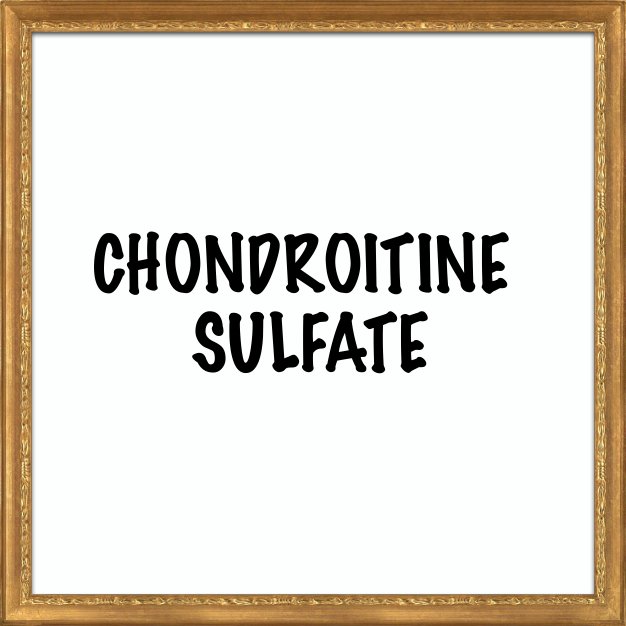
Chondroitin sulfate is found in cartilage. In osteoarthritis, the cartilage wears down and taking chondroitin sulfate helps to slow down this wear and tear. In combination with glucosamine, it supports the restoration and maintenance of the normal structure and function of articular cartilage. It also helps relieve pain caused by arthritic conditions.
|
Vitamin E (D-alpha-tocopheryl acetate)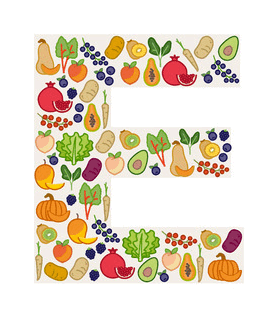
Vitamin E is best known as a fat-soluble "free radical scavenger." Just like vitamins A and C, it protects the body's cells against aggressive oxygen compounds and toxins in the environment. Vitamin E can thus delay premature aging and prevent cell damage leading to disease or even cell degeneration. Due to its protective effect, vitamin E, which in the language of chemistry is called D-alpha-tocopheryl acetate, is widely used in cosmetics. It also plays an important role in protein and fat metabolism. Vitamin E supports the functioning of the cardiovascular system in two ways. First, it helps reduce "bad" cholesterol, and thus has a positive effect on blood vessels. Second, it prevents red blood cells from sticking together and thus improves blood circulation. Since vitamin E also has an anti-inflammatory effect, it can help relieve rheumatic pain. Vitamin E is formed exclusively in plants and starts from there along the food chain. Signs of vitamin E deficiency are skin problems, muscle weakness, degeneration and a higher susceptibility to infections. Supplementing the daily diet with vitamin E can be conveniently and easily implemented through nutritional supplements.
|
Artichoke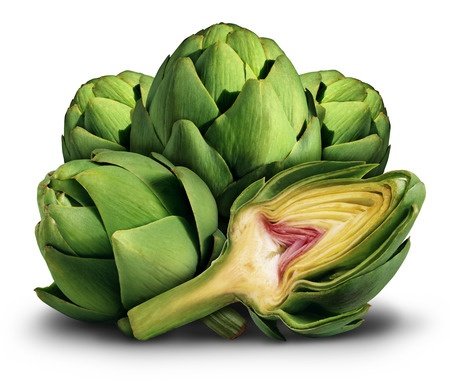
The artichoke (Cynara scolymus) is a thorn-like, strong plant of the Asteraceae family. In 2003, the artichoke was chosen as the medicinal plant of the year. Artichokes are believed to have appetite enhancing, digestive and cholesterol lowering effects. Based on different mechanisms of action a) through increased cholesterol excretion, b) increased consumption in the synthesis of bile acids and c) inhibition of cholesterol formation in liver cells, it is believed that lowering of total cholesterol by up to 12% is possible through the artichoke. In this regard, artichoke has an important role in the prevention of atherosclerosis. The bitter substance Cynarin in the artichoke stimulates the metabolism of the liver and bile. Their leaves are eaten steamed, used for juices, teas, dry extracts and tinctures. Their medicinal and dietary effect is explained by the content of flavonoids and quinic acid derivatives.
|
Grape seeds (extract)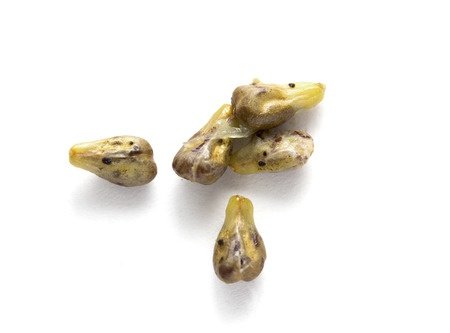
OPC or oligomer procyanidins are very powerful and are sometimes called natural super antioxidants. Their antioxidant action is determined by their extremely condensed aromatic rings, which are perfect stabilizers of free radicals. Polyphenols, anthocyanins and catechins enhance the OPC antioxidant effect and slow down aging processes. Even in the often bitter red grape seeds, high levels of OPCs, polyphenols and anthocyanidins have been found.
|
Devil's Claw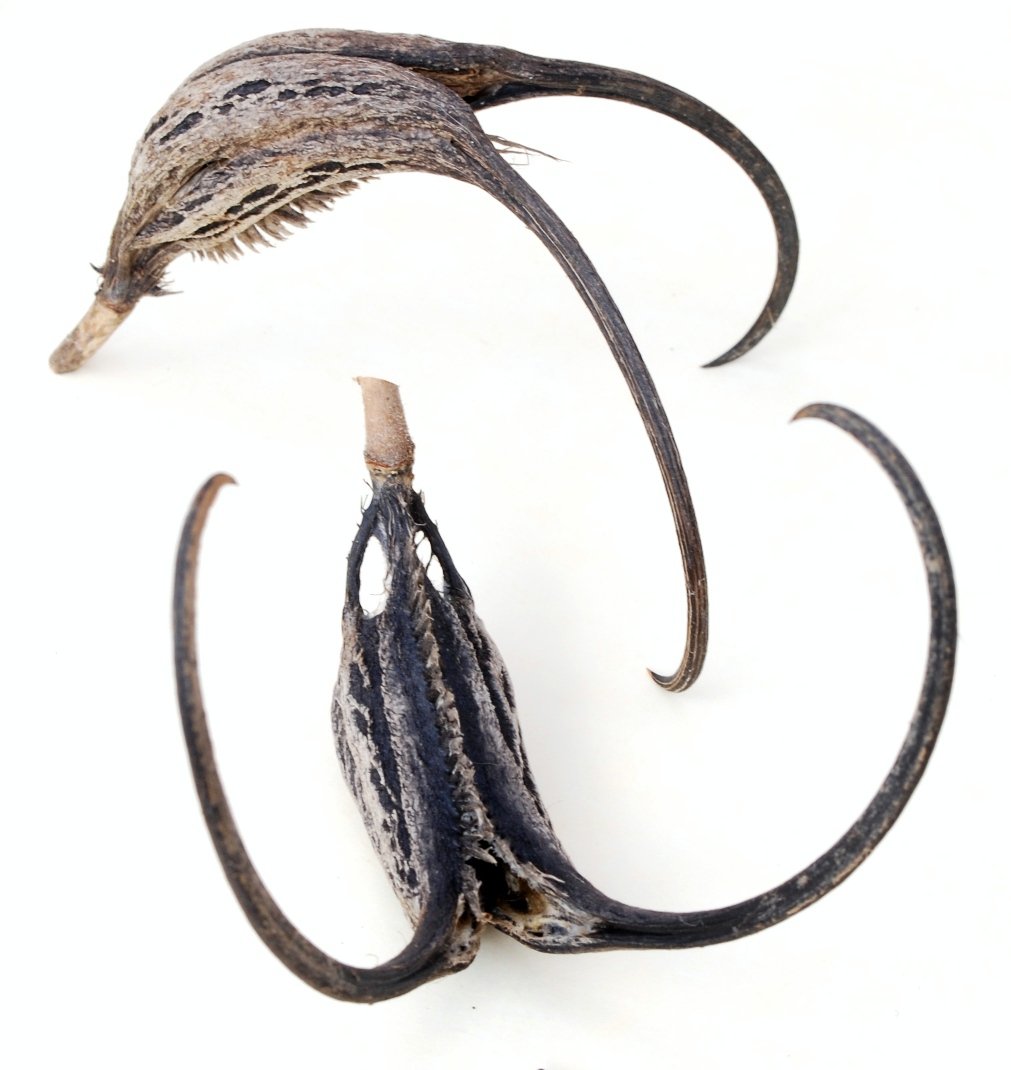
Devil's claw (Harpagophytum procumbens) is a South American plant known for its ability to relieve pain in inflamed joints and help preserve their mobility. It is used for muscle and tendon pain, reduces inflammation and relieves back and neck pain.
Devil's claw gives positive results for digestive problems and high cholesterol.
|
Rosemary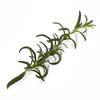
In naturopathy, rosemary (Rosmarinus Officinalis) is used internally as a tea to stimulate blood circulation and against intestinal gas. It mainly acts as a stimulant for the blood supply to the abdominal organs and for the formation of gastric and intestinal juice. Rosemary tea also stimulates the formation of bile juice, acts as a diuretic, and also sharpens the appetite. The essential oil contained in rosemary has a strong antiseptic, antifungal and antimicrobial effect. The main active substances that produce these effects are carnosol, turpentinoids and rosmarinic acid.
|
Incense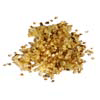
Frankincense (Boswellia), Boswellia serrata, is a tree species native to India. Its resin is used in traditional Ayurvedic medicine to treat arthritis and as an expectorant. The extract has an anti-inflammatory and pain-relieving effect and therefore has a beneficial effect on severe pain, stiffness, stiffness. Unlike other products with the same effect, which often cause gastro-enterological problems, Boswellia is an extremely gentle plant and does not cause any digestive disturbances and ulcers. On the contrary, frankincense is also known for its extremely strong positive effect on inflammatory bowel diseases, such as Crohn's disease for example. Boswellic acids, which are contained in frankincense, prevent harmful changes in cells and slow down the aging process. The active ingredient in incense ACVA (acetyl-11-keto-beta-boswellic acid) regulates the cellular mechanism that promotes cell healing and fights against the effects of cancer on healthy cells. AQUA strongly suppresses cancer, including colon, pancreatic, stomach, ovarian and breast cancer.
Boswellia reduces fragility and strengthens cartilage by preserving much-needed collagen for the construction and flexibility of joints. Results appear relatively quickly - on average after two to four weeks from the start of treatment, and the effect is even better when boswellia is combined with turmeric, which is also known for its anti-inflammatory and pain-relieving effects.
Although Boswellia is not exactly an analgesic, it works in the following way:
It directly affects the molecules that cause the inflammation and hence the pain
Reduces joint swelling and morning stiffness
It supports flexibility through the boswellic acids it contains, which inhibit the 5-lipoxygenase (5-LOX) enzyme that mediates arthritic diseases, accelerates oxidative stress, is responsible for calcium translocation and autoimmune reactions, and more.
|
Selenium (from selenium yeast)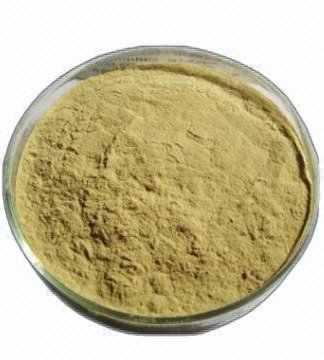
Selenium is one of the most important trace elements necessary for our body. It is a co-factor in a number of enzymes that protect cells from the toxic action of peroxide radicals. This determines its antioxidant effect. In recent years, selenium deficiency has been considered as a possible etiological factor in some cardiovascular diseases, which is caused by the destruction of cell membranes by free radicals in selenium deficiency. It reduces the risk of cancer. It facilitates the removal of heavy metals from the body, including cadmium and arsenic, so it is necessary for smokers and residents of large cities. It slows down the aging of tissues, including the skin, making it smooth and tight. It is also important for eye health. In menopausal women, it relieves attacks of hot and cold flashes. When used simultaneously with vitamin E and provitamin A (beta carotene), they mutually enhance their effect.
|

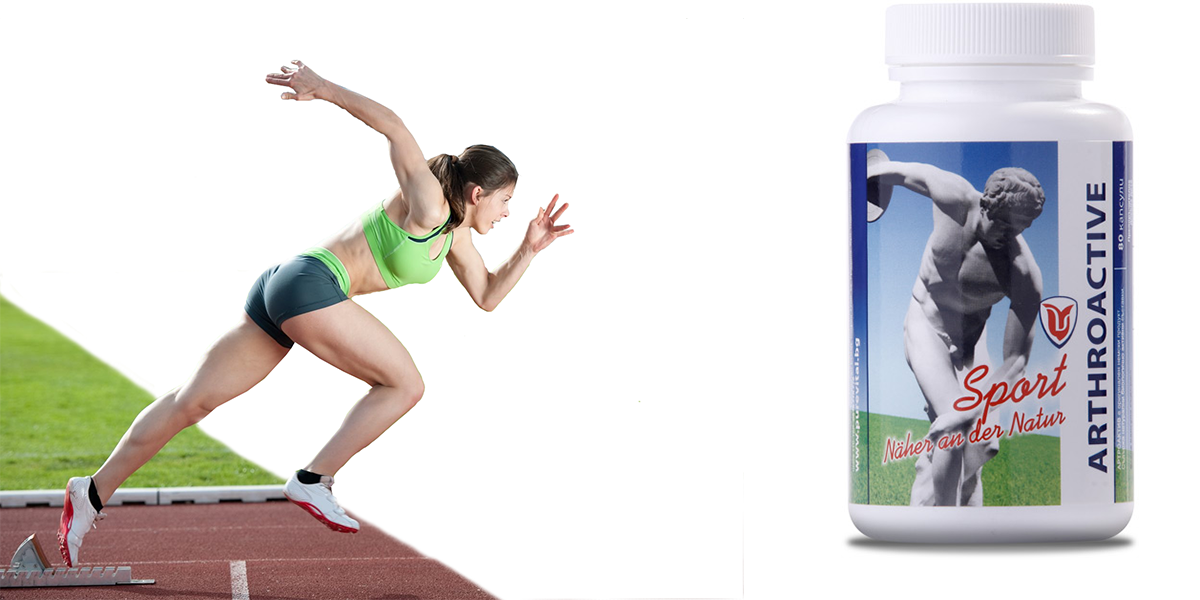


There are no reviews yet.